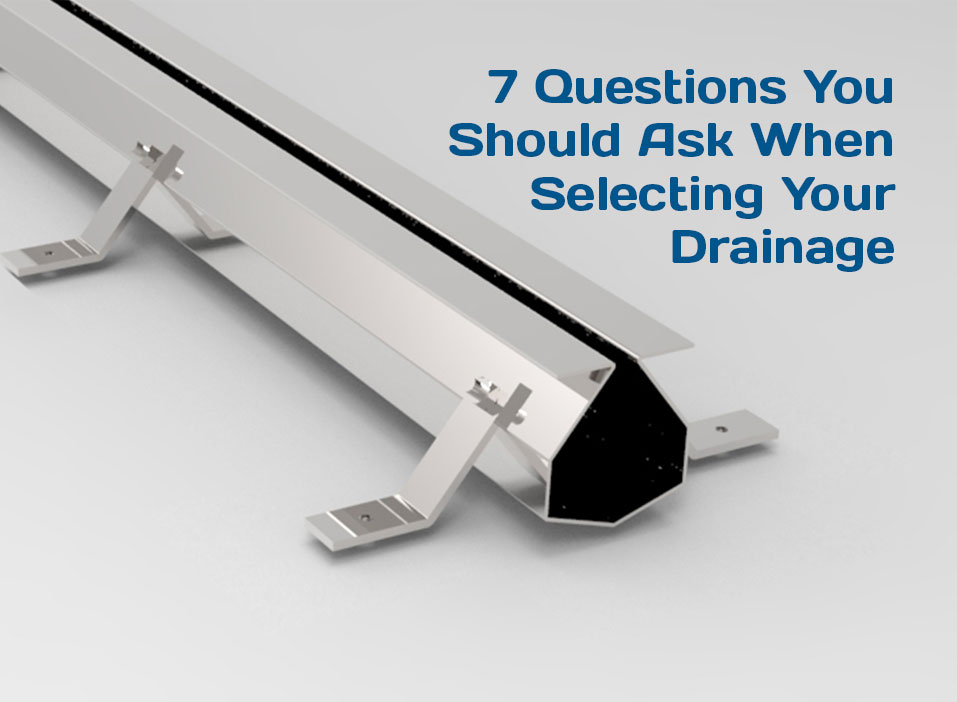People have a tendency to overlook the importance of a good drainage system for their construction project. Whether it is a commercial or a residential project, there is no denying how critical it is to choose the right drainage system. But, with so many different systems available on the market, it can be challenging to know what’s best. To help make the decision process easier, here are seven essential questions to ask, so that you can select the best drainage system possible.
1. Which type of flow rate is best for my needs?
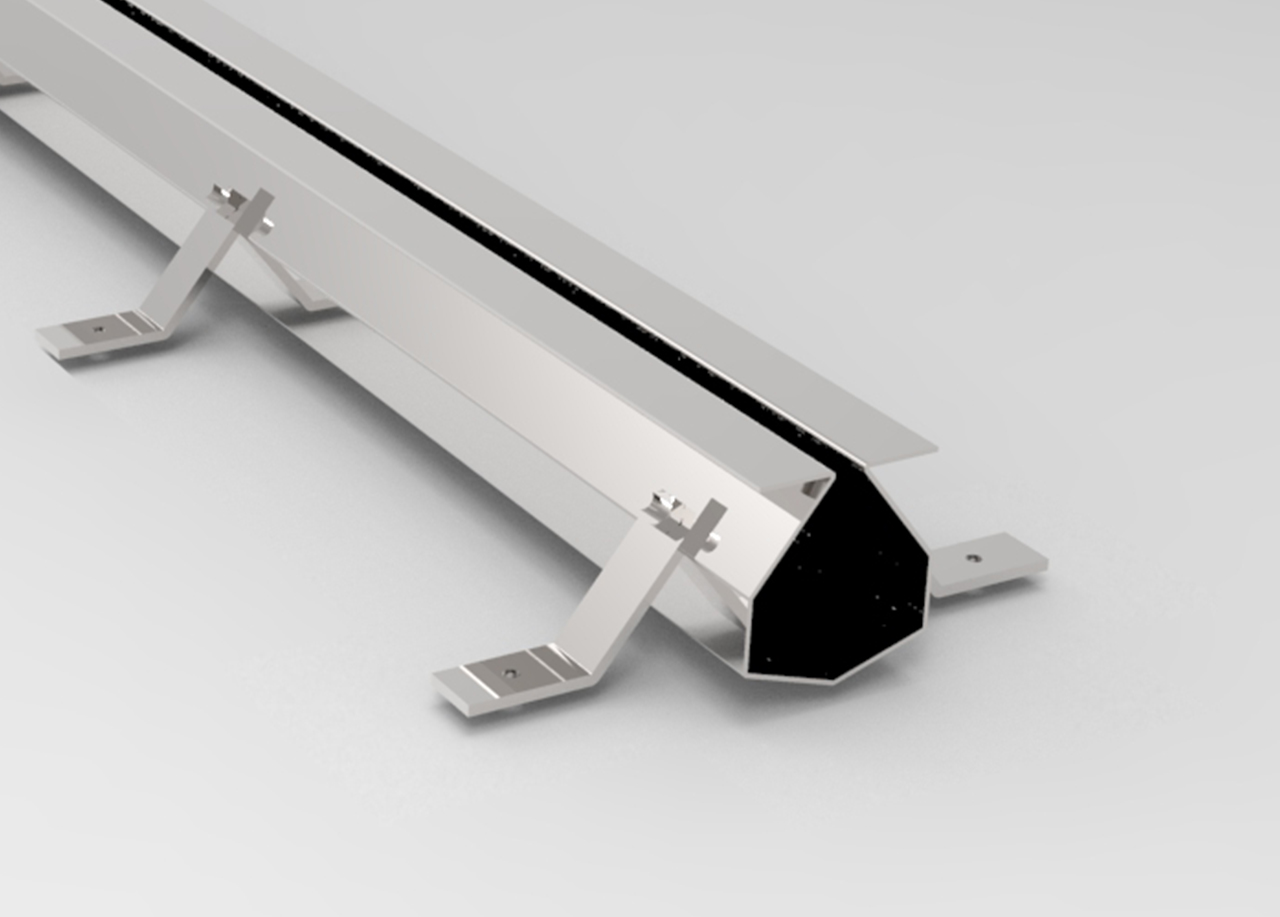
The flow rate of a drainage system refers to how much liquid the drainage system can handle at once. A system’s flow rate is determined by the size of the drain channel’s opening—the larger the opening, the higher the flow rate. Because of this, different drainage systems offer different flow rates.
In choosing what kind of flow rate is best for your project, you want to consider the application you are looking at. Residential applications can go with lower flow rates, while industrial projects are better off with wider openings that allow for more substantial flow rates.
2. What kind of load capacity does the system have?
Knowing the load capacity of a drainage system is vital, as it will determine how much weight the system can handle. Like with choosing the flow rate, the load capacity you need is determined by the application you are considering.
For high-traffic areas where heavy machinery will be passing through, you want the highest load capacity you can get, which is Load Class F. For areas of less traffic, you can go with lower load capacities. For grate-covered systems, it is essential to note that it is not just the drain channel that needs to have the right load capacity, but the grate as well. Otherwise, it will break easily, which can lead to injury.
3. Is this system chemical-resistant?
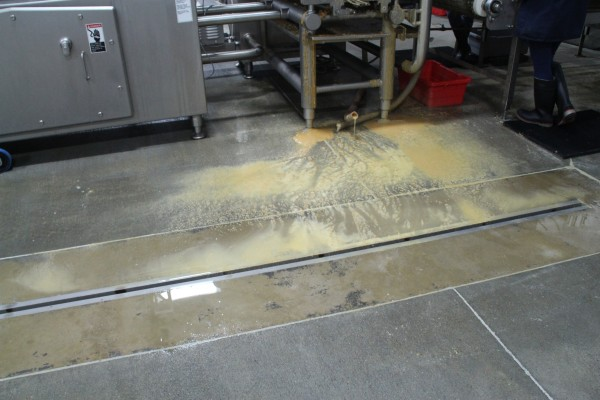
Commercial and industrial drainage systems are subject to a lot of different intense situations. One thing you want to be sure of is that whatever system you choose is made using chemical-resistant materials, like stainless steel.
By ensuring the system you choose is chemical-resistant, you will not have to worry about it eroding and breaking due to the use of strong chemicals for cleaning.
4. How well does this system handle extreme temperatures?
Like with chemical resistance, you also want to ask about how well the system handles extreme temperatures overall.
Some facilities, such as breweries and industrial plants, deal with liquids that reach high temperatures. Whatever drainage system you have in place needs to be capable of handling these liquids with ease, without breaking or becoming damaged.
Alternatively, you may need a drainage system in a refrigeration or freezer room, and it needs to be able to withstand those extreme temperatures in the opposite direction.
5. How easy is this drainage system to maintain?
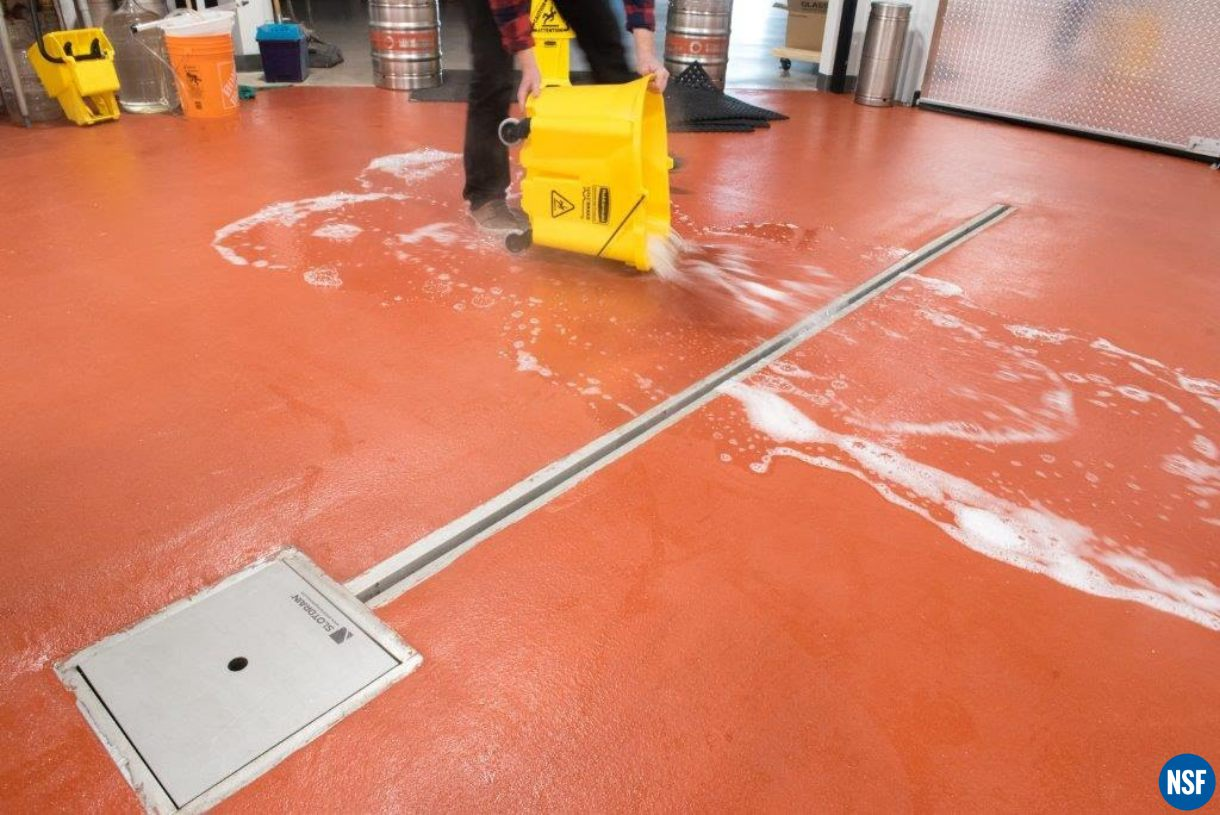
When choosing a drainage system, another area of concern is the level of maintenance the system may require. Grated trench drain systems generally require extra maintenance due to the grate covering they have, which also has to be cleaned and replaced every few years.
Ideally, you want a drainage system that is as low-maintenance as possible, so it is essential to ask what kind of maintenance the different systems you are considering will require.
6. Does the system offer specific safety features?
Safety has become increasingly important in all areas of life, and having safe ADA-compliant materials in buildings is essential. This idea, of course, also applies to your drainage system. If any part of the system—the channel, the grate, or anything else—were to break, it could lead to potentially serious injuries. Or, if the channel were too wide, it could cause issues with people tripping on the opening.
Because of this, you want to ask what sort of safety features the system has and if it is an ADA-compliant system.
7. How long should this system last?
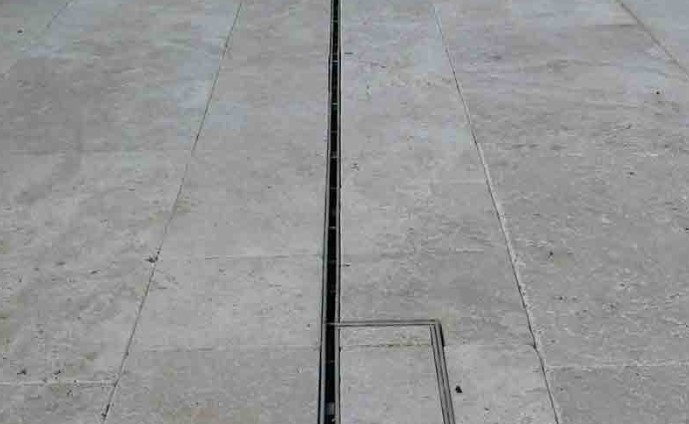
You do not want to have to replace parts or an entire drainage system every few years—that would create many unnecessary expenses on your behalf. Ask how long a system is made to last; high-quality products may cost a little more, but they will be built to last for many years without ever breaking, degrading or needing replacing, which can save you thousands over time.
Choosing the right drainage system can be a difficult process, but asking the right questions makes all the difference. One high-quality drainage option to consider is the Slot Drain system. This system can meet all of the needs mentioned above and more, making it ideal for everything from commercial to residential applications. When it is time to find a drainage system for your project, look no further than Slot Drain—they will have you covered.

